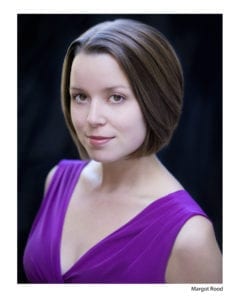Notes from the Conductor…
By Patrick Dupré Quigley
This program features two sides of Bach’s musical personality: the florid, Italianate Bach who studied the music of the Roman priest Antonio Vivaldi, and the firm, Lutheran Bach in the capitol of Saxony. The first half sees a nearly-Handelian cantata for the first Sunday of Advent, BWV 61, Nun komm der Heiden Hiland, surrounded by its Italian predecessors. One of the finest Baroque cantatas written for the human voice, Vivaldi’s Nisi dominus is a dramatic catharsis on Psalm 126 (127) for alto. It explores both the depths and the heights, musically and vocally. The concert begins with Vivaldi’s Venetian musical ancestor Claudio Monteverdi.
The second half begins with a secular Winter gem, the Frost Scene, from Purcell’s King Arthur, defender of England against the Saxons. This tongue-in-cheek miniature sees Love conquering Reason, warming the cockles of music’s first Grinch, The Cold Genius. There is no chill to Bach’s genius, however, in the evening’s final cantata: BWV 140, Wachet auf, ruft uns die Stimme. A regal masterpiece, used only on years of early Easters, this brilliant vocal-orchestral concerto for the week preceding Advent is at the very heart of Bach, the Lutheran. Bach handles the chorale tune so delicately that one can feel his reverence through his pen stroke.
Some Interesting Facts…
BWV 61 and BWV 140 were composed for a similar purpose and premiered 7 days shy of 17 years apart. In the first, we see a serious, young Bach trying to prove himself at the Weimar Ducal Court in his new position as Director of Music. In the latter, we find Bach a year into the job where he would spend the rest of his life: Thomaskantor in Leipzig. The writing is self-assured, warm, and joyous, and shows Bach at his most melodic.
That the “Cold Genius” aria is not the first piece we think of when Purcell’s name is mentioned is a testament to the even greater triumph that is Dido and Aeneas. In the “Frost Scene” —a play within the larger five act play of King Arthur—we encounter Cupid and the Cold Genius locked in a rhetorical battle over the value of Reason without Love. With fantastical effects from the orchestra and vocalists, Purcell conjures up a chilly world that is thawed by the warmth of Love.
Vivaldi’s “Nisi Dominus” is a concerto for the Alto voice. There is some thought that, as the piece cannot be definitively traced back to the all-female choir and orchestra at the Pieta, Vivaldi’s primary employer, that this piece may have been written for performing forces outside of the Venetian orphanage, thus performed by both countertenors and contraltos. The scope of the piece, alone, would be daunting for most singers. It is, however, a primer on the facility of the lower treble voice—alternatingly mourning, soulful, didactic, virtuosic, and plaintive. Its harmonic language remains fresh and bracing to even the most modern-biased ear.


 PATRICK DUPRÉ QUIGLEY – conductor
PATRICK DUPRÉ QUIGLEY – conductor MARGOT ROOD – soprano
MARGOT ROOD – soprano REGINALD MOBLEY – countertenor
REGINALD MOBLEY – countertenor STEVEN SOPH – tenor
STEVEN SOPH – tenor STEVEN EDDY – baritone
STEVEN EDDY – baritone
